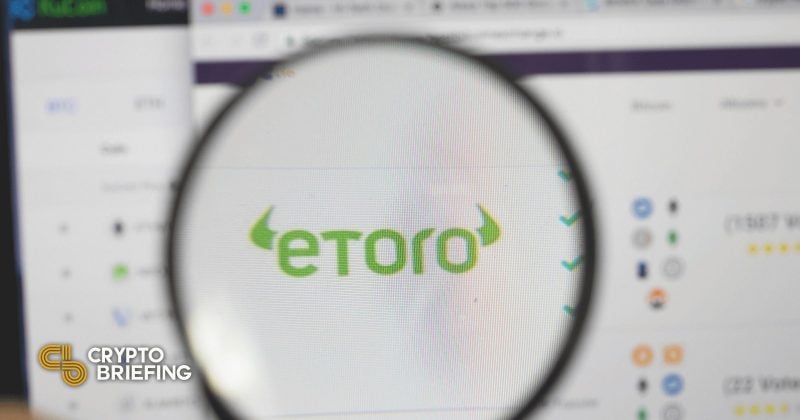As President-elect Donald Trump’s inauguration draws near, cryptocurrency investors are hoping that his pledge for the industry will come to fruition. But analysts caution that immediate changes may be unlikely due to legislative delays.
Investors’ hopes for changes in cryptocurrency regulations will require patience.
According to Greg Cipolaro, the Global Head of Research at New York Digital Investment Group (NYDIG), while Trump could use an Executive Order (EO) to enforce the establishment of a US strategy Bitcoin reserve, one of his most anticipated crypto promises, this lacks permanence. A future president could overturn the directive.
Big Hopes
In contrast, the BITCOIN Act, the proposed legislation by Senator Cynthia Lummis, is a more permanent solution, Cipolaro states. The act targets the same goal and would involve the U.S. Treasury acquiring up to 1 million BTC over a five-year period.
The bill is currently in the introductory stage in Congress and must pass the Senate and House of Representatives before being signed into law by the President. However, Cipolaro suggests that the process is “likely to take more time.”
The delays are mainly due to other more pressing legislative priorities. The analyst notes that Congress will address issues that need immediate actions, such as “geopolitical conflict, the budget and debt ceiling, global trade and tariffs, and immigration,” before turning their attention to cryptocurrency.
And as the result of these priorities, other bills concerning cryptocurrencies, like the Financial Innovation and Technology for the 21st Century Act (FIT 21) and stablecoin regulations. FIT21 passed the House last year and is now awaiting consideration in the Senate.
Lawmakers are also working on a stablecoin regulatory framework, but as of now, there has been no bill passed. A bipartisan stablecoin bill introduced by Sen. Lummis and Kirsten Gillibrand, known as the Lummis-Gillibrand Payment Stablecoin Act (S. 4155) is the most noteworthy.
NYDIG’s research head adds that Trump’s pledge to have all Bitcoin mined in the U.S remains speculative due to the lack of concrete plans or frameworks backed this promise.
An earlier report from Bloomberg shared that industry experts were also doubtful about the feasibility of Trump’s promise despite widespread belief in its benefits to the mining industry. The reality complicates any attempt to localize Bitcoin production strictly within the U.S.
Luxor Technology COO Ethan Vera said it might not materialize due to ongoing challenges like the decentralized nature of Bitcoin and growing competition from other nations which have already ramped up their mining capabilities and have also had cost advantages.
But Trump did fulfil some of his key crypto promises, including efforts to create a crypto-friendly environment for businesses in the country. The President-elect has selected a list of pro-crypto candidates for many key positions that indirectly and directly affect the industry.
Scott Bessent, Trump’s nominee for Treasury Secretary, has expressed a favorable view of cryptocurrencies. His background as a hedge fund manager with pro-crypto sentiments is expected to foster a supportive environment for digital assets. His role may also link to Trump’s goal to create a national Bitcoin stockpile.
Despite the positive outlook from some appointees, there is uncertainty surrounding Trump’s choices for other important regulatory roles at the Commodity Futures Trading Commission (CFTC), Office of the Comptroller of the Currency (OCC), and Federal Deposit Insurance Corporation (FDIC).
Institutional Adoption and ETF Developments
A landmark event that shaped the year of 2024 was probably the approval of spot Bitcoin ETFs in the US. Funds like BlackRock’s iShares Bitcoin Trust (IBIT) and Fidelity’s Wise Original Fund (FBTC) secured big wins, NYDIG’s report highlights.
The debut of US Bitcoin ETFs opened the door for more security approval of other crypto-related investment products. Throughout the year, the SEC greenlit spot Ether ETFs and options trading for Bitcoin ETFs, both were important developments that could enhance market liquidity and provide new investment options for participants.
These approvals, coupled with market optimism surrounding the upcoming pro-crypto administration, have led to multiple public firms to adopt Bitcoin for their strategic strategy reserves. MicroStrategy is clearly the pioneer in this field.
Not only Bitcoin, companies are starting to explore alternatives like Ether, Ripple, and Solana. By the end of 2024, the scope of expected crypto ETFs had expanded beyond those tied to Bitcoin and Ether, now including more cryptocurrencies.

 2 days ago
10
2 days ago
10









 English (US) ·
English (US) ·